| |
|
|
| |
|
|
| |
 |
Jason Baker, MD, Fellow of Infectious Disease, University of Minnesota, Minneapolis, Minnesota, USA |
His work is in the field of opportunistic and non-AIDS related diseases, evaluating the variable risk for prevalence of non-AIDS diseases based upon the level of CD-4 cells. The study he conducted is being evaluated for evidence to consider earlier treatment, with respect to decreasing non-AIDS disease. Even with the evidence he has presented he feels larger cohort trials may be needed to answer these questions. |
 |
 |
 |
| |
|
|
|
|
|
|
| |
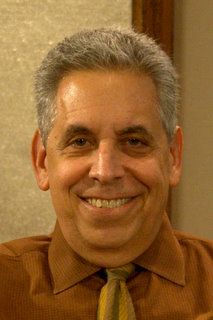 |
Edward Berger, PhD, Chief, Molecular Structure Section, Laboratory of Viral Diseases, National Institute of Allergy and Infectious Disease, NIH, Bethesda, Maryland, USA |
His laboratory has had a long-standing interest in how enveloped viruses enter target cells. His group seeks to unravel the basic mechanisms of membrane fusion mediated by the interactions of viral envelope glycoprotein’s with their target cell receptors, and to apply that knowledge to the development of novel strategies to treat and prevent virus infection. This work has expanded their studies to diverse enveloped viruses of significance into human health, including herpes viruses and flaviviruses. This interview covers the background, pathogenesis and future work needed around HIV viral entry into the cell, as well as a look at the potential for microbicide research. Interview by Rey Candelaria |
 |
 |
 |
| |
|
|
|
|
|
|
| |
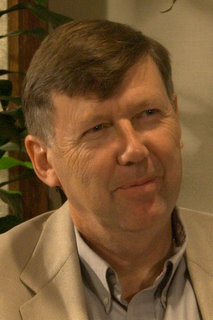 |
Dennis Burton, PhD, Professor of Immunology, the Scripps Research Institute, La Jolla, California, USA |
Dr. Burton presented his data on the broadly neutralizing antibodies against the HIV virus as a vaccine candidate. The approach he will discuss is the combination of both a DNA vaccine in conjunction with a neutralizing antibody to create a more realistic candidate. He proposes the possibility of providing a reasonable benefit even without a completely effective vaccine. Interview by Rey Candelaria |
 |
 |
 |
| |
|
|
|
|
|
|
| |
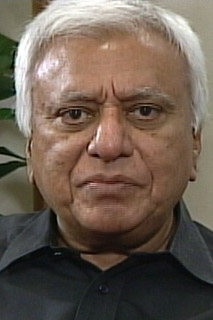 |
HM Gerry Coovadia, MD, Professor Office of the Victor Daitz Chair in HIV/AIDS Research, KwaZulu, Natal, South Africa |
Dr. Coovadia will discuss the very different paradigms of infant feeding needs in the developing World compared to the developed World. He presents the astonishing data which answers the question of who should breast-feed and who should use formula. He stresses the importance of consistent Antiretroviral treatment for the entire period of womanhood to prevent the very real possibility of orhpanhood. Interview by Fred Schaich. |
 |
 |
 |
| |
|
|
|
|
|
|
| |
 |
David Cooper, MD, Director and Professor of Medicine, The University of New South Wales, National Centre in HIV Epidemiology and Clinical Research, New South Wales, Australia |
Dr. Cooper has demonstrated an interest in long-term complications of HIV and Drug Treatment. With recent evidence of increase of serious events with a late start of drug treatment, there is renewed interest in starting earlier. He is currently looking at initiating a study in individuals with greater than 500 CD4’s, with regimens which are more patient friendly drugs. Does the early treatment have a sustainable and overall better outcome than waiting until later in the HIV disease process. We will certainly see the answers in research which David Cooper and other will conduct. Interview by Fred Schaich. |
 |
 |
 |
| |
|
|
|
|
|
|
| |
 |
Bryan R. Cullen, PhD James B Duke Professor & Director, Center for Virology, Duke University Molecular Genetics & Virology Department, Durham, North Carolina, USA |
Dr. Cullen will discuss a new approach to anti-HIV medicine using a new gene vector which is essential for the virus but dispensable for the host. He’ll also cover the discovery of current targets for RNAi and RNAi delivery approaches and other potential diseases and how to benefit from RNAi research. |
 |
 |
 |
| |
|
|
|
|
|
|
| |
 |
Kevin DeCock, Chief of AIDS Branch, World Health Organization, Switzerland |
Dr. DeCock is renown in his work for many years with the CDC in Nairobi Kenya. As a member of the CROI Committee and focus in international issues he is well placed to discuss the issues that are coming to the surface such as, male circumcision, Multi-drug and extensively drug resistant TB. He will speak to the complexity of TB and Antiretroviral Treatment roll-out and how to reduce the still increasing rate of infections in MSM population and Eastern Europe. He also covers the prevention of orphanhood through appropriate infant feeding for each population and timely registration of pediatric formulation. Interview by Fred Schaich |
 |
 |
 |
| |
|
|
|
|
|
|
| |
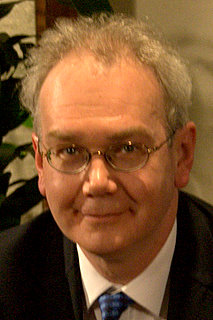 |
Steve Felstead, MD, VP, Development Team leader, Research and Development, Pfizer, Sandwich Laboratories, United Kingdom |
Dr. Felstead described the way in which Maraviroc and the CCR5 class of drugs work to defeat the HIV virus and the difference between it and the other coreceptor CXCR4. He also describes the use of the Trofile test to determine whether patient’s virus uses CCR5 or CXCR4 coreceptors. He will talk about his and other researcher’s excitement in the development of this new compound. Interview by Nita Costello |
 |
 |
 |
| |
|
|
|
|
|
|
| |
 |
Martyn French, Clinical Director, the University of Western Australia, Royal Perth Hospital, Western Australia |
Dr. French Describes the Immune Recovery Inflammatory Syndrome (IRIS), which seems to display its ill effects on people who are at the same time having a positive immune response. He covers the best ways one might avoid the IRIS response. He will also cover the prospects of immune system enhancement to include immune based therapies and other approaches. Interview by Fred Schaich |
 |
 |
 |
| |
|
|
|
|
|
|
| |
 |
Joel Gallant, MD, Professor of Medicine in the Division of Infectious Diseases, Johns Hopkins University School of Medicine, Professor of Epidemiology, Johns Hopkins, Bloomberg School of Public Health, Associate Professor of the Johns Hopkins AIDS Service, Director of the Gary Lambert Research Center, Baltimore, Maryland, USA |
Joel will speak about several new drugs likely to be approved this year, which are first drugs in two new classes of ARV drugs. Maraviroc is the first CCR5 entry inhibitor with Vicroviroc also close to approval as well. Maraviroc, the first CCR5 tropism candidate that will be approved, as well as the tropism that will also be used to evaluate those who may use the drug. The new drug Raltegravir is from the other new class of drugs called integrase inhibitors. Elvitegravir is the other drug in this class which expected to be approved in the next year or so. TMC 278 and TMC 125 Etravirine, new drugs in the non-nucleoside class of drugs will be reviewed as treatments for experienced patients.
He will cover resistance issues, appropriate treatment strategies, commitment to adherence and hopes for the future with so many new treatments in the pipeline.
Interview by Rey Candelaria |
 |
 |
 |
| |
|
|
|
|
|
|
| |
 |
Harold Jaffe, MD, Professor of Public Health, St Cross College, University of Oxford, United Kingdom |
Professor Jaffe spent most of his career at the US Centers for Disease Control and Prevention, where he served as the Director of the National Centre for HIV, STD, and TB Prevention. In Oxford, he is Head of the Department of Public Health and has helped establish a new MSc course in Global Health Science. His current interests are in international health, HIV/AIDS, and AIDS-related cancers. With this strong background in HIV and his apparent leadership in prevention activism and advocacy and education and years the DDC, he was the obvious choice to give the 14th CROI plenary talk, “Status of the US HIV/AIDS Epidemic: Is it Changing and If Not, Why Not?” Interview by Fred Schaich |
 |
 |
 |
| |
|
|
|
|
|
|
| |
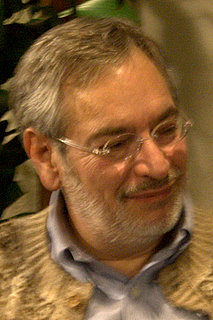 |
Donald Kotler, MD, St. Lukes Roosevelt Hospital, New York, New York, USA |
Dr. Kotler has been working in the field of AIDS wasting and lipid issues for well over 25 years. In this interview he reviewed conflicting data on from several trials in the development of lipoatrophy which seemed to come from the use of effavirenz. Equally confusing results in the Sculptra trials, evaluated by CT scan vs. visual results, and quality of life and patient satisfaction. He gives his view of outcomes of bone disease, evaluation of osteopenia and osteoporosis as well as ways to increase bone density and improve long-term muscle health in the process. He will also provide some understanding to the development of diabetes through congenital or acquired insulin resistance. Another subject covered is how an individual my review their need for Growth Hormone and why it may be an alternative that could utilized and when, as well as how we may be able to have it paid for. Interview by Nelson Vergel. |
 |
 |
 |
| |
|
|
|
|
|
|
| |
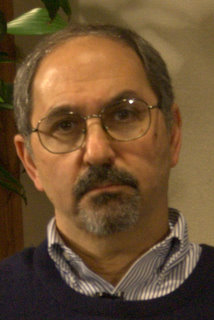 |
Kenneth A. Lichtenstein, MD, Head of the Department of Medicine at Rose Medical Center and Professor of Medicine and Infectious Diseases, University of Colorado Health Sciences Center, Denver, Colorado, USA |
Dr. Lichtenstein gave his view of the CROI regarding the overall shift from a strong focus at the newer medications, and their direct side effects, to a more pathophysiological view of the interaction of the body with the virus along with inflammatory response to the disease. He will discuss his expectations for much greater sophistication of the work that will be done in the coming years. Review by Michael Dorosh |
 |
 |
 |
| |
|
|
|
|
|
|
| |
 |
Paul Nunn, MD, Coordinator, TB/HIV and Drug Resistance STOP TB Department, World Health Organization, Geneva, Switzerland |
Karin and Paul focus on avenues of approach for reduction in the transmission of both multi-drug resistant (MDR) and extensively drug resistant (XDR) TB. They describe the prevention and treatment intervention measures that are necessary in populations of the various countries as well as need for policy change in government and provider community. Interview by Fred Schaich |
 |
 |
 |
| |
|
|
|
|
|
|
| |
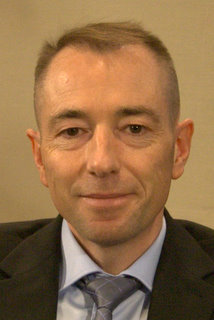 |
Andrew Phillips, MD, University College London, United Kingdom |
He will speak about a trial he conducted which was nested in the Start Trial. He’ll describe the findings of the trial regarding cardiovascular risk with people who may interrupt trial vs. those who continued on therapy. He described the value of evaluating various cholesterol levels, and what effect they might have on treatment discontinuation. |
 |
 |
 |
| |
|
|
|
|
|
|
| |
.jpg) |
Anton Pozniak, MD, Consultant Physician, Chelsea and Westminster Hospital, London, United Kingdom |
Dr. Pozniak made a late breaker presentation at the 14th CROI, on the study of TMC 278 (rilpivirine), a Phase II study of Tibotec’s experimental NNRTI. He reviews with us the 48-week data in the study that combined the new compound with Truvada (tenofovir plus emtracitabine) or Combivir (zidovudine plus lamividine). He describes the minor differences, the dose, the side effect profile comparisons, and the opportunity to go into co-formulations. He will cover the next steps for the drug development, roll-over patient studies, as well as in which patient populations this drug will likely be used. Anton will also provide a more in-depth look at resistance data before each person starts whether it is wild type or drug resistant. Interview by Rey Candelaria |
 |
 |
 |
| |
|
|
|
|
|
|
| |
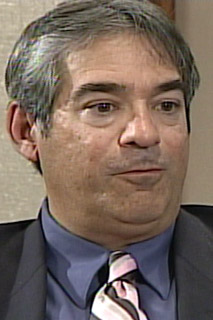 |
Ken Sherman, PhD, Gould Professor of Medicine, Director, Division of Digestive Diseases, Cincinnati, Ohio, USA |
As a leader in the field of HIV/Hep C co-infection, Dr. Sherman will give his perspective on current treatment, when to treat and consideration of liver biopsy vs. new interesting emerging lab markers. He will express his concerns about the need for human behavior modification, government guideline changes, and proper management of existing guidelines. (50min:23sec) Interview by Brian Risley |
 |
 |
 |
| |
|
|
|
|
|
|
| |
 |
Henrick Streeck, MD Research Fellow, Partners AIDS Research Center, Harvard Medical School, Boston, Massachusetts, USA |
His work is in the immune based therapies, to define features on their cells such as Gag and Pol, which can be used as biomarkers, to describe the pathogenesis of that type of virus. Hendrick will describe the work that he presented at the CROI and his excitement about working with a goal of actually using this immune based therapy as a therapeutic vaccine, in the future. |
 |
 |
 |
| |
|
|
|
|
|
|
| |
 |
Karin Weyer, MD, Director/TB Research, South Africa Medical Research Council, Pretoria, South Africa |
Karin and Paul focus on avenues of approach for reduction in the transmission of both multi-drug resistant (MDR) and extensively drug resistant (XDR) TB. They describe the prevention and treatment intervention measures that are necessary in populations of the various countries as well as need for policy change in government and provider community. Interview by Fred Schaich |
 |
 |
 |
| |
|
|
|
|
|
|

